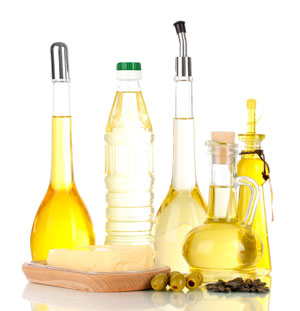 Have you noticed the increasing number of culinary oils on supermarket shelves? I have, but although I’ve been interested I’ve tended to stick to using only those with which I’m familiar. However, according to dieticians, adding a variety of nut, vegetable, and seed oils to our diets can provide us with a range of beneficial anti-inflammatory fats, beneficial vitamins, and antioxidants – not to mention some delicious new tastes.
Have you noticed the increasing number of culinary oils on supermarket shelves? I have, but although I’ve been interested I’ve tended to stick to using only those with which I’m familiar. However, according to dieticians, adding a variety of nut, vegetable, and seed oils to our diets can provide us with a range of beneficial anti-inflammatory fats, beneficial vitamins, and antioxidants – not to mention some delicious new tastes.
Oils vary widely in terms of flavour, composition, and nutritional quality, and are not all suited for the same purposes. When deciding which to use, the two main considerations are whether the colour, aroma and consistency of the oil complement the food being prepared, and whether the oil is to be heated, used ‘raw’, or both.
Olive. With health-boosting high levels of monounsaturated fats (which help lower “bad” cholesterol while increasing “good” cholesterol), and omega-3s to protect the heart, olive oil can be used in marinades, as a salad dressing, or to stir-fry or sauté over medium heat. Don’t use it for cooking at very high temperatures; it tends to smoke. For salad dressings or marinades, extra virgin olive oil (which comes from the first pressing), has a richer, fruitier flavour than regular olive oil.
Canola. Rich in monounsaturated fatty acids, canola oil also contains essential omega-3 fats. It has a light, neutral flavour, and is versatile enough for a variety of cooking purposes, from baking to grilling to stir-frying. Although you can use it “raw”, its most suitable application is in cooking, where it stands up well to high temperatures.
Sunflower. Sunflower is a good source of the protective antioxidant vitamin E and of polyunsaturated fatty acids to help lower cholesterol. It’s a suitable oil for cooking, and doesn’t smoke unpleasantly at high temperatures. However, its polyunsaturates are largely omega-6 rather than the more-beneficial omega-3, so you need to make sure you’re getting enough omega-3s from other sources. Re-using the oil more than a few times for deep-frying could cause the formation of harmful trans fats.
Sesame seed. If it’s appearance and flavour you’re after, this is the oil for you. Rich in both mono- and polyunsaturated fatty acids, sesame oil is wonderfully heart-healthy. It’s often used in Asian-inspired cooking, dressings, and marinades, to which it adds a deliciously deep, true, sesame taste. It can tolerate high temperatures, making it a particularly good choice for stir-fries.
Peanut. Peanut oil contains high levels of the antioxidant vitamin E, monounsaturated fats, and phytosterols – compounds which may help maintain healthy cholesterol levels. It has a light, nutty flavour and can be heated to high temperatures, making it ideal for marinades and stir-frying. It also has a particularly long shelf life.
Avocado. This is even higher in monounsaturates than olive oil is, and is a great source of vitamin E. Its slightly nutty flavour, delicate scent and pale green colour make it an interesting choice for drizzling, dipping and dressings. It can be used for medium-heat cooking too.
Walnut. Not recommended for cooking, walnut oil when heated turns bitter and loses its antioxidants, but the delicate, nutty flavour and lovely amber colour make it ideal for use in salad dressings and cold sauces. Walnut oil is more than ten times higher in omega-3s than olive oil. It is one of the more expensive of the culinary oils, but you don’t need to use much of it to experience the health and flavour benefits.
Grapeseed. Derived from the seeds of wine grapes, grapeseed oil is versatile whether heated or “raw”. It is rich in polyunsaturated fats, is a natural source of vitamin E, and contains plant pigments believed to protect against disease. It is suitable for high-heat cooking, or salad dressings, or for preparing infusions of herbs and spices.
Be sure to store all oils in the recommended location and at the right temperature; read the label for specific instructions. Most cooking oils do best kept in the fridge or in a cool, dark cupboard far away from the stove to avoid temperature spikes. Oils with a percentage of polyunsaturated fatty acids (such as walnut and grapeseed oils) have a shelf life of about six months, while monounsaturated oils like avocado, olive and peanut will keep for a year in the right conditions.
Now I’m looking forward to being a little more adventurous when it comes to choosing culinary oil!
Image: Africa Studio/Shutterstock.com
Other articles you may be interested in:
Good fats and bad fats
Can it be coconut oil




28 Responses
I had no idea you would cook with avocado oil… You learn something new everyday!
hmm I now know my oils, great article!
Time to experiment with a couple of alternatives to olive oil!
wow, i didnt know my oils, now i do.
Good to know
Good article indeed. great information I have gained from this. Thanks to the author who wrote this.
great article..I use to use only sunflower oil when cooking but since i discovered that olive oil is so good for a pesons health im just using olive oil now..will love to try the peanut and avocado oils..
I didn’t know there was so much to learn about oils! Very informative